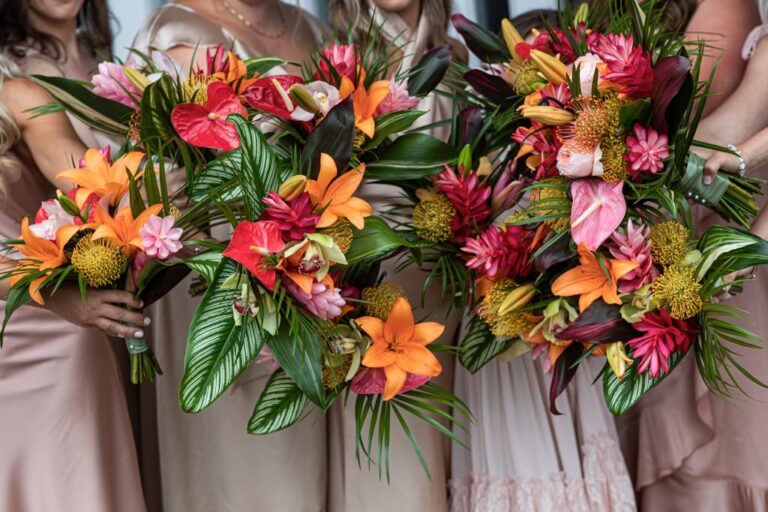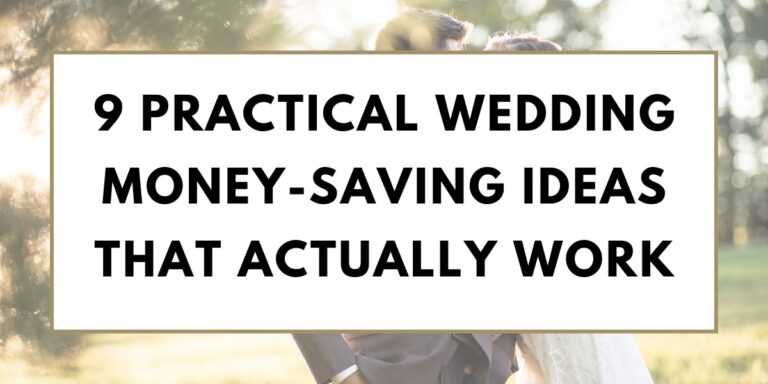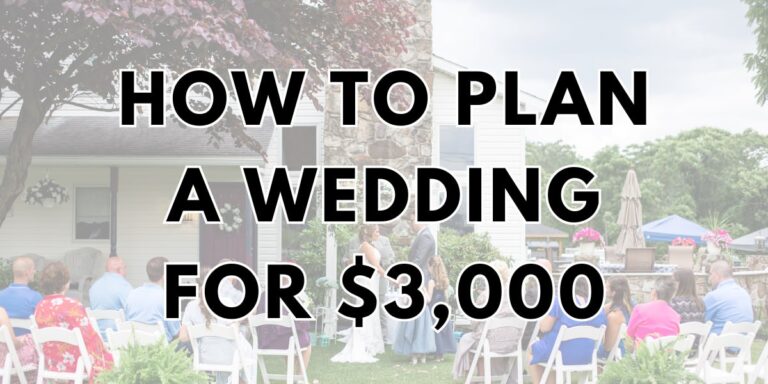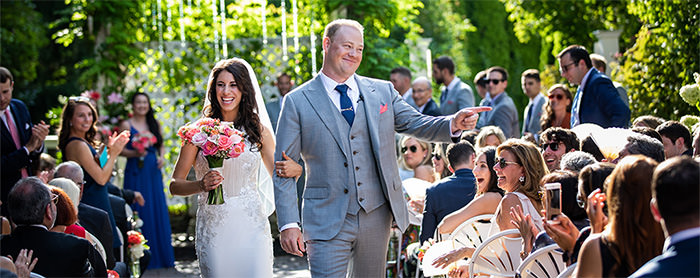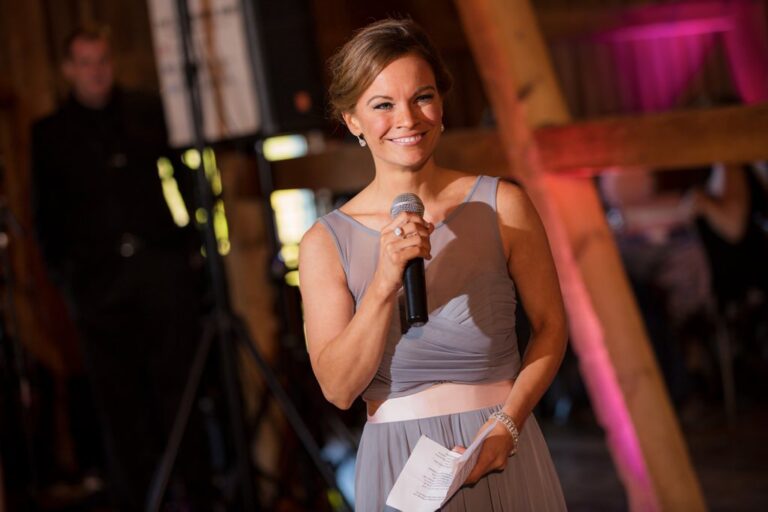10 Surprising Wedding Expenses You Can Avoid (Save Big)
Weddings are amazing but as we all know, they can get expensive really fast.
I have worked in the wedding industry for over 14 years and wanted to share this list of 10 wedding expenses you can avoid while planning your special day.
Enjoy!

1. Extra Wedding Venue Fees
Some wedding venues charge for services like cake-cutting, corkage, or even cleanup. Ask upfront about all potential fees. Make sure everything is in the contract.
Related article: Questions you should ask a wedding venue before signing a contract
2. Invitation Postage
Heavy or oddly shaped invitations can cost more to mail. And if you are mailing out 100+ invitations, that amount can grow quickly.
Choose standard-size invitations to avoid the extra postage.
Related article: How to save money on your wedding invitations
3. Vendor Meals
You’ll want to feed your wedding vendors if they work the entire day with you.
Ask about providing simple vendor meals instead of full-priced plates.
Full-priced meals can cost up to $100+ per meal depending on your catering package. Most caterers will have a much cheaper option that usually consists of a sandwich and chips.
When I am photographing weddings, I typically bring my own food, but most vendors are going to want a meal provided.
Make sure to read each contract because some vendors require the same meal that your guests are having. You just want to know ahead of time so that there are no surprises towards the end of the planning process.

4. Permits For Wedding Photos
Purchasing a permit for your on-location wedding photos and video catches many couples off guard because it’s something you typically would not have to think about.
This won’t apply to everyone, but if you are taking your photos in a city like NYC, Philadelphia, San Francisco, etc, many locations will require you to purchase a permit.
If you plan on taking photos on location, ask your photographer or videographer if a permit is needed for the places you are visiting.
These permits can cost up to $300-$400 so it’s worth asking ahead of time.
If you don’t want to pay this fee, simply choose a different spot like the location of your ceremony or reception.
5. Overtime Fees For Wedding Vendors
Typically, wedding vendors like your photographer, videographer, and DJ are hired for a set amount of hours.
If you end up needing them longer, they will have an overtime charge that will cost anywhere from $200-$500 per house (or more depending on the cost you originally paid).
To avoid this charge, make sure everything is wrapped up in the time that you have them.
One mistake I often see couples make is at the reception.
Say they have a photographer for 8 hours (from 12 pm to 8 pm). But the couple takes some extra time walking around to tables and saying hello to guests so they never get to the cake cutting or other special events at the reception until after 8 pm.
Now they have to make a choice…
Pay the photographer/videographer overtime to capture these moments, or send them home on time and not get any professional photos/video of them.
The solution is simple…Put together a great timeline and follow it to avoid this extra cost.
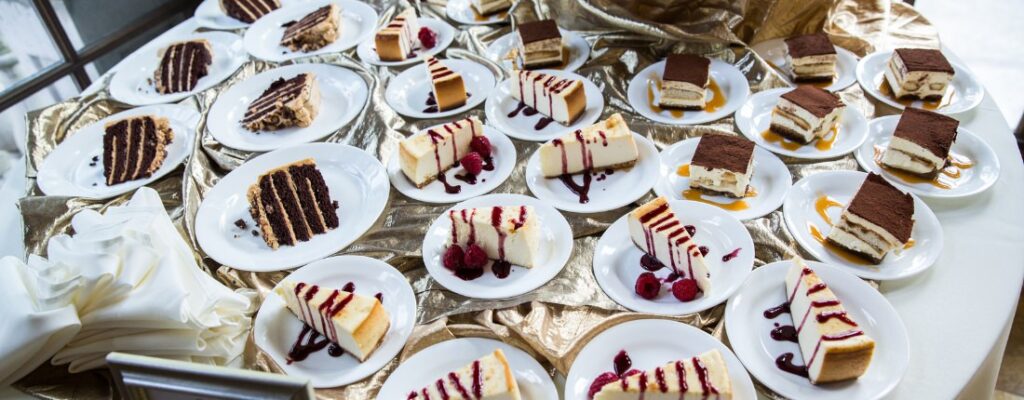
6. Cake Tasting Fees
When it comes to cake tasting, sometimes this is offered for free, and sometimes you have to pay. The price can range from around $25-$100.
To avoid this cost, attend a few wedding expos/bridal shows where most of the bakers who attend supply free tastings.
You can also check with the bakery you are looking at to see if they offer group tastings. This is where a bakery will hold an open house 1-2 times per month where you can go in and try their cakes at no cost.
As with everything else that is wedding-related…ask upfront.
7. Vendor Travel Fees
If your wedding vendors are traveling from out of town, they may charge extra for travel and accommodations.
Every vendor is going to have a different distance that’s included and a different fee that’s charged. Just ask upfront before signing a contract.
Try hiring local vendors to cut down on this cost.
8. Transportation Fees
If you are having a wedding reception that’s in a different location than your ceremony, do you plan on providing transportation for your guests from the hotel to the ceremony, then from the ceremony to the reception, and then from the reception back to the hotel?
If this is something you want to avoid, consider having your wedding at a location where everything takes place at the same venue (even getting ready).

9. Hotel Room Blocks
Some hotels require a minimum number of rooms to be booked for discounted rates, and you may face penalties if the block isn’t filled. Be cautious when estimating how many rooms you’ll need.
When asking the hotel for room blocks, make sure that they are “courtesy blocks.” This is where they will hold rooms for you and your guests but if they do not get booked, you are not financially obligated to pay anything.
If the hotel wants you to sign a contract, and put down a deposit, or if they will charge you for rooms that go unbooked, say no thank you and find a different hotel.
10. Setup and Cleanup Fees
Read your contract before signing and ask if setup fees and cleanup fees are included for your reception venue. They should be included in the labor section.
Make sure you are not going to get hit with another charge that you were not expecting.
More Wedding Planning Tips and Ideas
I hope that some of the ideas above help you save money while planning your wedding.
Here are a few more blog posts that you might find helpful:

